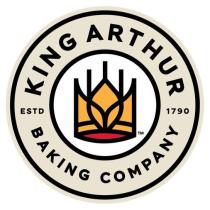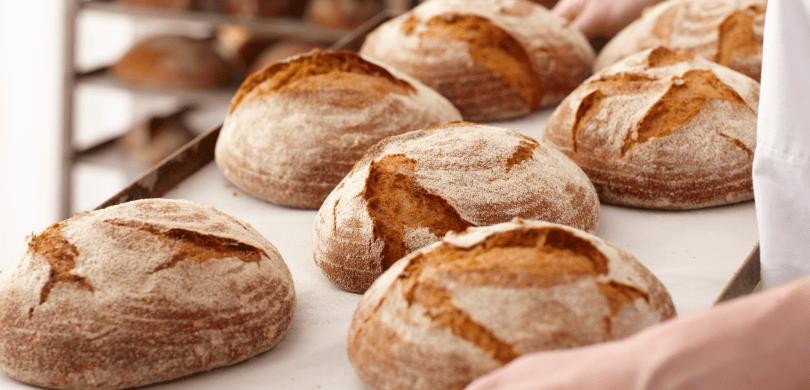
King Arthur Baking Company
Drupal, Acquia Cloud Platform

increase in site traffic
YoY increase in e-commerce sales
The Client
King Arthur Baking Company is an American supplier of flour, ingredients, baking mixes, cookbooks and baked goods. Founded in Boston, Massachusetts in 1790, King Arthur Baking Company is now based in Norwich, Vermont.
The Situation
As one of America’s oldest and most beloved companies, King Arthur Baking Company has to continually raise the bar on how it engages with its loyal customer base. While most of King Arthur Baking Company’s business is wholesale and retail, the direct-to-consumer (D2C) channel is the company’s priority business line to enhance. King Arthur Baking Company set out to build a brand-driven digital experience that would increase top-funnel engagement among the 2,000+ baker-tested recipes, ultimately leading to more people purchasing from the online store.
During the global COVID-19 pandemic, many people began baking more at home and turned to King Arthur Baking for recipes, tutorials and baking supplies.
The Challenge
Customers demand information when and where they need it, not just stowed away in a recipe book. With rising customer expectations and rapidly changing online habits, King Arthur Baking Company needed to evolve with the change and build a content-driven, dynamic web experience. The sudden influx of traffic from stay-at-home bakers meant King Arthur Baking needed to quickly update its Drupal website to scale to the demand and host more personalized content to meet the changing needs of consumers.
The Solution

Working with Third and Grove, King Arthur Baking Company focused on improving the usability and integration of the website to deliver a more seamless and contextual commerce experience. To account for the influx of site visitors coming to King Arthur for online resources and educational content during the pandemic, Acquia and Third and Grove helped King Arthur Baking build and deliver new personalized content experiences.
Using Acquia Cloud Platform, King Arthur Baking quickly scaled its cloud infrastructure to meet unpredictable traffic surges without lags or unexpected downtime. With the powerful hosting abilities of Acquia Cloud Platform, King Arthur enhanced its server capacity and content management capabilities to meet this boost in site visitors.
The Results
The upgraded King Arthur Baking website, powered by Acquia, has the speed and scalability to reliably serve personalized content to millions of eager bakers. Together with Third and Grove, Acquia tightly integrated content and commerce across King Arthur Baking’s digital ecosystem, so its marketing team could quickly launch new recipe pages and direct consumers to the right products they’re looking to buy.
As a result of this refreshed and strengthened digital experience, King Arthur Baking can successfully meet consumers’ need for content. Website sessions are up 260% and e-commerce sales have increased 200% year-over-year in the early months of 2020 versus 2019.
![Diagram shows how user data is unified with AgilOne across different platforms listed vertically including web, email marketing, ecommerce, social media, and CRM. [image acquia/dxp-shared-user-data]](/sites/default/files/styles/large/public/legacy/images/2019-12/ai3_0_4.png?itok=87w0vEIk)